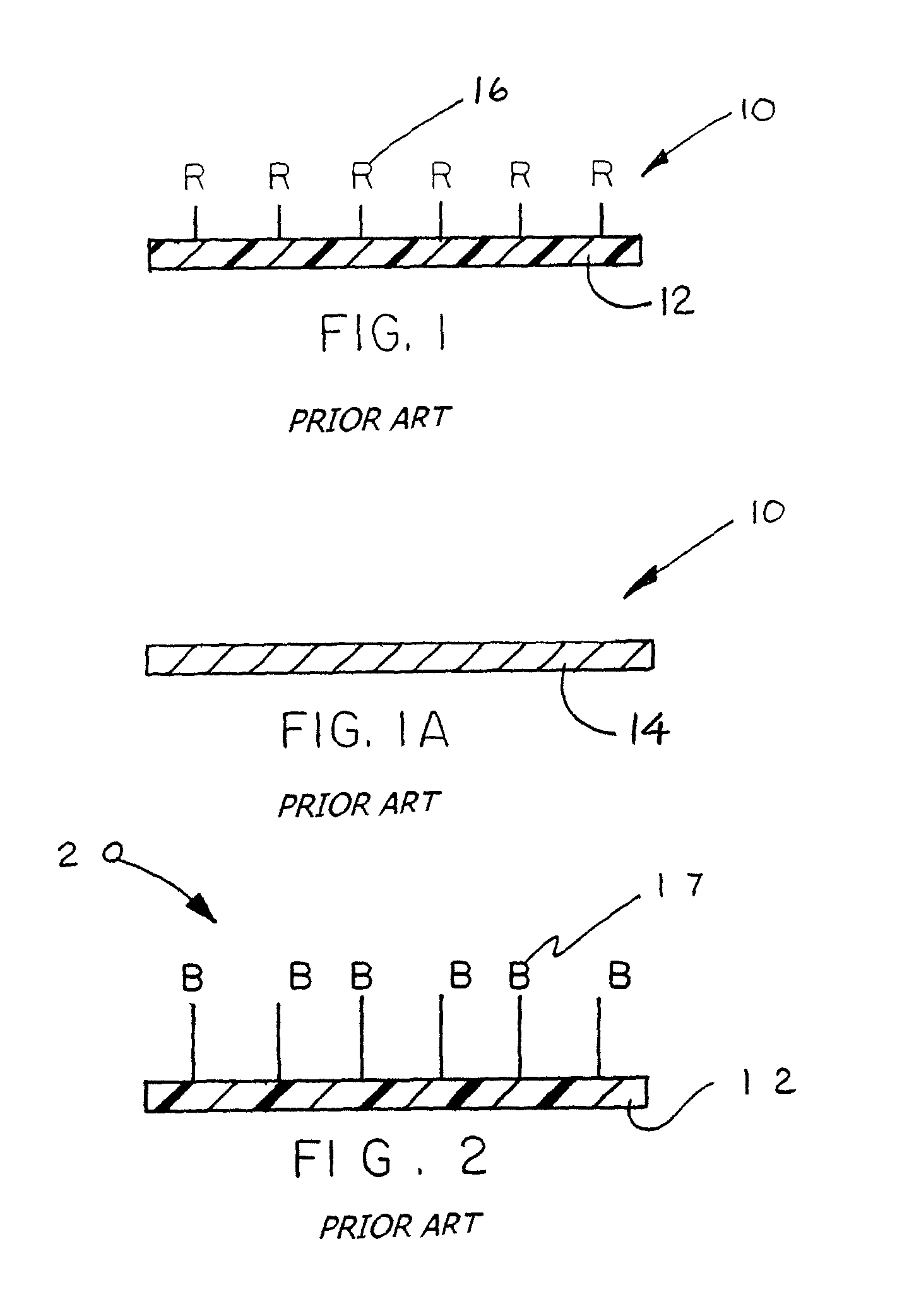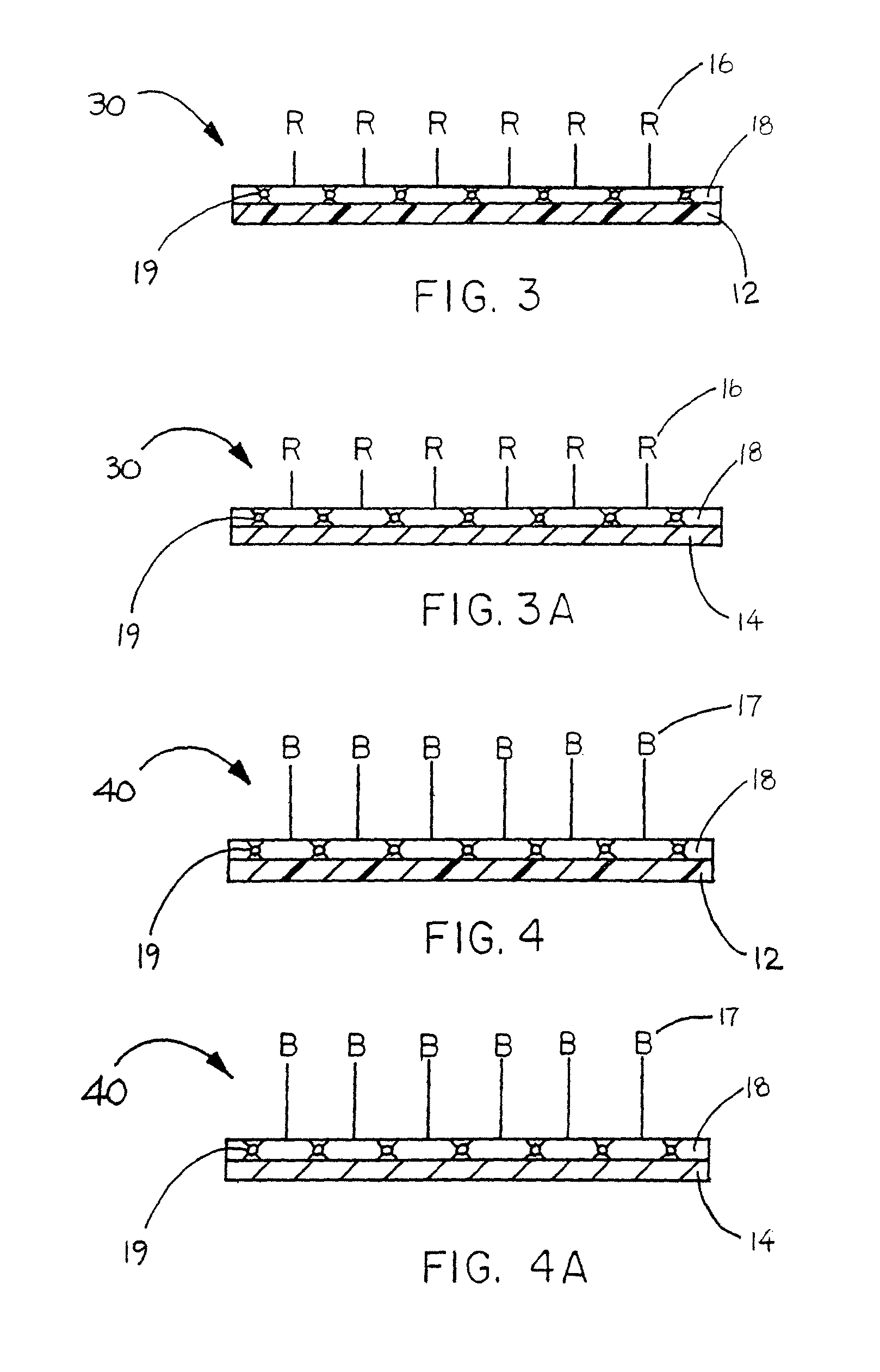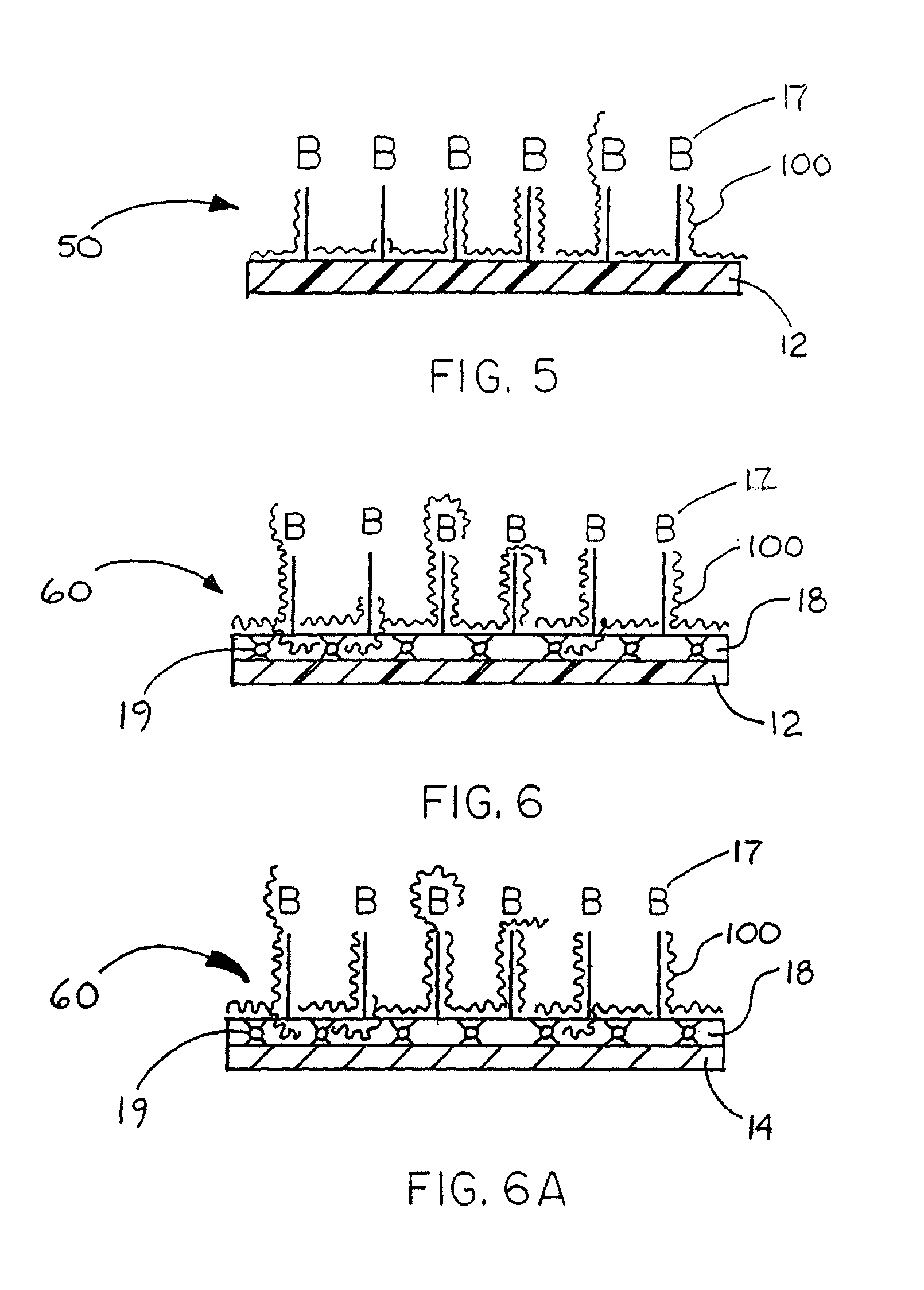Immobilized biologically active entities having a high degree of biological activity
a biological activity and high degree technology, applied in the field of medical devices, glass, polymeric, metallic materials, etc., can solve the problems of degrading the biological activity of the entities
- Summary
- Abstract
- Description
- Claims
- Application Information
AI Technical Summary
Benefits of technology
Problems solved by technology
Method used
Image
Examples
example 1
[0076]This example demonstrates retention of biological activity of unbound “neat” heparin following exposure of the heparin to an ethylene oxide (EtO) sterilization process.
[0077]In this example, unsterilized USP grade heparin-sodium in lyophilized powder form was obtained from Celsus Laboratories (Cincinnati, Ohio). Measured quantities of heparin were placed into CHEX-ALL® sterilization pouches (Long Island City, N.Y.) for testing. One group of heparin-containing pouches was exposed to EtO sterilization. Ethylene oxide sterilization was carried out under conditions of conditioning for one hour (1 hr), an EtO gas dwell time of one hour (1 hr), a set point temperature of fifty-five degrees centigrade (55° C.), and an aeration time of twelve hours (12 hr). Another group was subjected to the sterilization procedure in the absence of EtO. A third group was not exposed to the sterilization procedure.
[0078]Following the sterilization procedure, known quantities of heparin were removed fr...
example 2
[0080]This example describes the construction of an embodiment of the present invention in which heparin anti-thrombin III (ATIII) binding is not significantly diminished by exposure to EtO sterilization.
[0081]In accordance with U.S. Pat. No. 6,653,457, which is incorporated herein by reference, an aldehyde modified heparin composition made according to U.S. Pat. No. 4,613,665, which is incorporated herein by reference, was end-point attached to a covering material, or coating layer, placed on an expanded polytetrafluoroethylene (ePTFE) material. An additional biologically compatible organic composition was incorporated within the covering material and bound heparin to enable the immobilized heparin to undergo EtO sterilization without significant loss in biological activity.
[0082]An ePTFE material in sheet form was obtained from W.L. Gore & Associates, Inc., Flagstaff, Ariz. under the tradename GORE™ Microfiltration Media (GMM-406). A covering material in the form of a base coating...
example 3
[0101]This example describes the ability of an additional biologically compatible organic composition to produce a high anti-thrombin III (ATIII) binding activity of heparin end point attached to a polymeric covering material on a substrate material that is a component of an implantable medical device.
[0102]The implantable medical device used in this example was in the form of a nitinol wire reinforced tube made of a porous, expanded, polytetrafluoroethylene (ePTFE) material obtained from W.L. Gore & Associates, Inc., Flagstaff, Ariz. under the tradename VIABAHN® Endoprosthesis. The tubular device was fifteen centimeters (15 cm) in length and six millimeters (6 mm) in diameter.
[0103]The VIABAHN® Endoprosthesis was constrained within a delivery catheter and required removal from the catheter before immobilizing heparin thereon. Each catheter-constrained device was removed for processing by pulling a release cord attached to a constraining sheath and releasing the sheath from around t...
PUM
| Property | Measurement | Unit |
|---|---|---|
| temperature | aaaaa | aaaaa |
| surface area | aaaaa | aaaaa |
| surface area | aaaaa | aaaaa |
Abstract
Description
Claims
Application Information
 Login to View More
Login to View More - R&D
- Intellectual Property
- Life Sciences
- Materials
- Tech Scout
- Unparalleled Data Quality
- Higher Quality Content
- 60% Fewer Hallucinations
Browse by: Latest US Patents, China's latest patents, Technical Efficacy Thesaurus, Application Domain, Technology Topic, Popular Technical Reports.
© 2025 PatSnap. All rights reserved.Legal|Privacy policy|Modern Slavery Act Transparency Statement|Sitemap|About US| Contact US: help@patsnap.com



